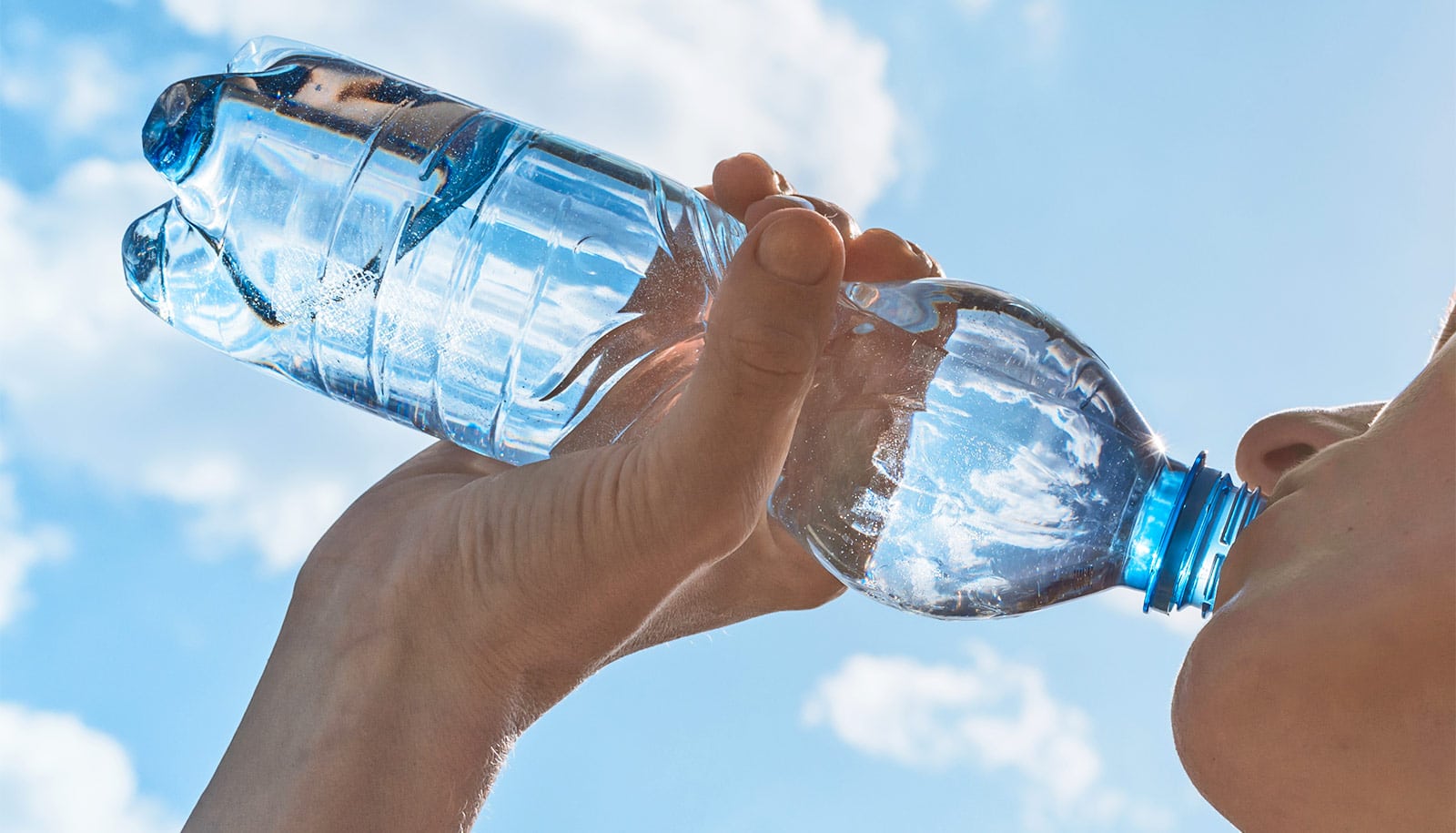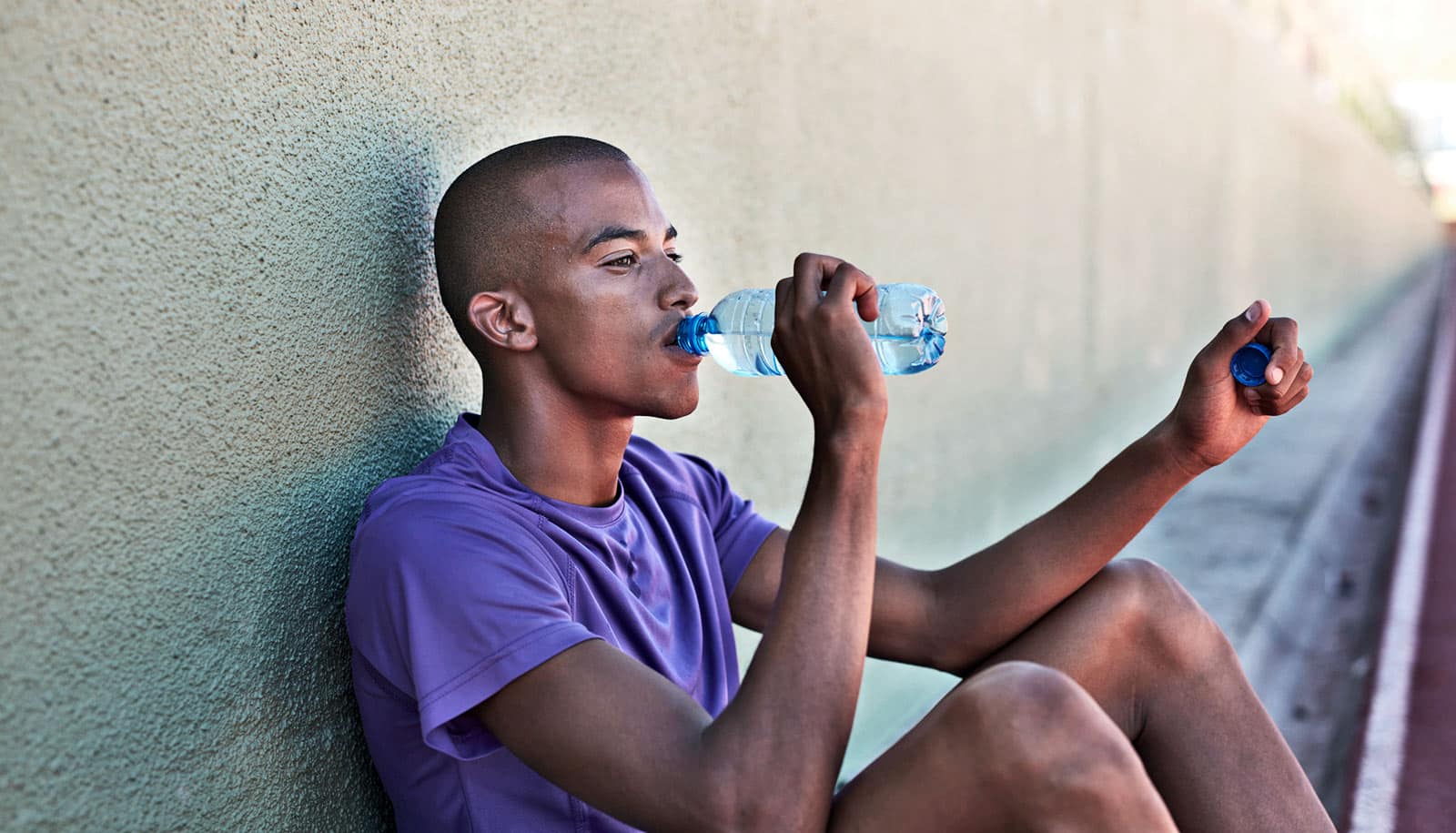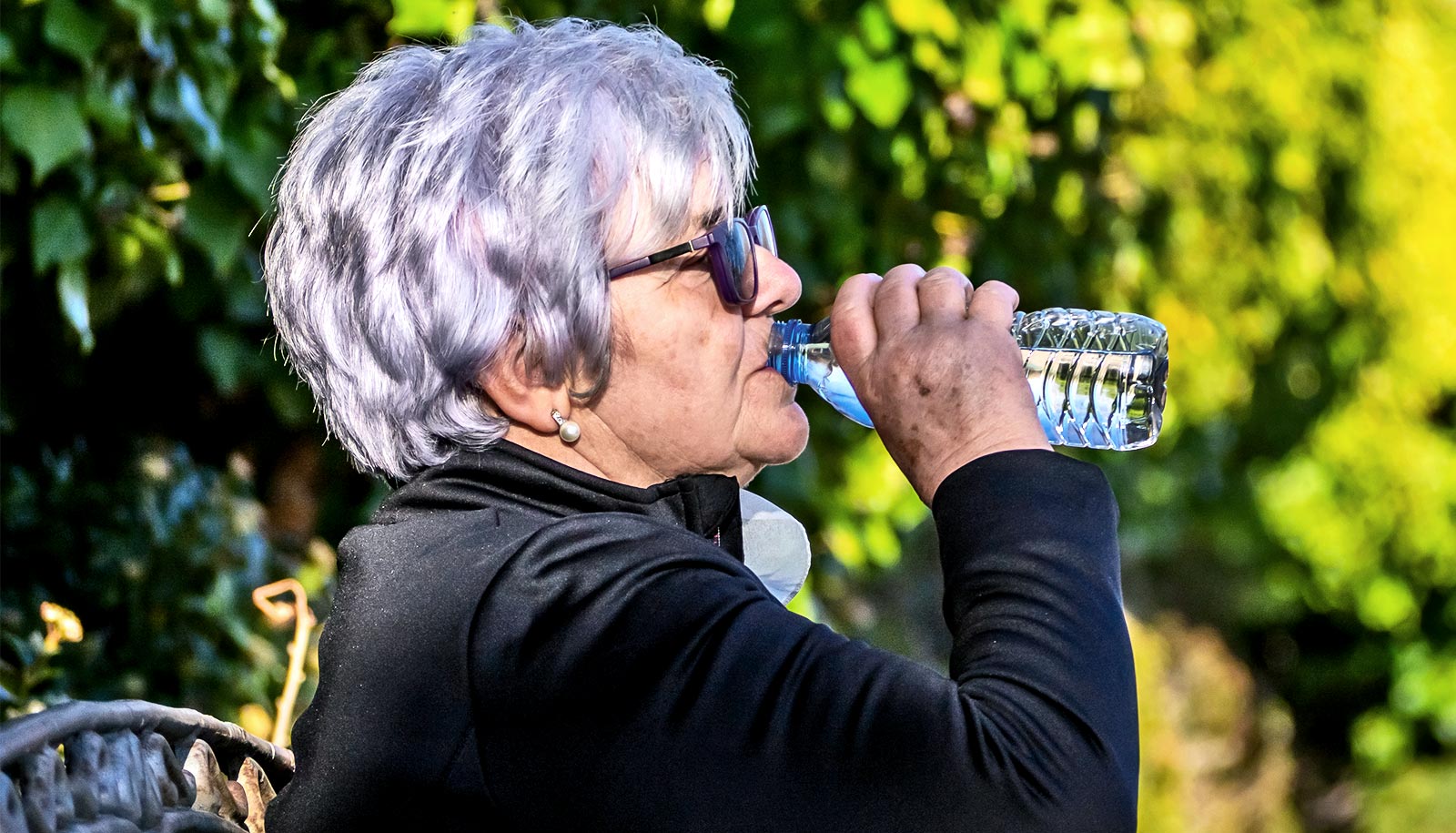We all know that drinking water is key, but what is the best way to stay hydrated?
Does everyone need to drink 8 glasses of water each day? Will that morning coffee really dehydrate you?
Here, Holly Gilligan, a clinical dietitian at the University of Rochester Medicine’s fitness science department, weeds out the truth from the fable of a few common myths:
1. Myth: Everyone needs 8 glasses of water a day
While drinking 8 glasses (64 ounces/2 liters) is an easy goal to remember and can certainly be reasonable for some, many factors affect individual hydration needs. These include:
- Weather: When heat and humidity rise, we need to drink more.
- Sweat rate: This is the amount you sweat during a period of physical activity. To figure out your own sweat rate, weigh yourself before and after a workout. For each pound lost, drink 24 ounces of water. So, if you’re down two pounds after a training session, be sure to drink 48 ounces of water.
- Sweat type: This is the amount of sodium and other electrolytes in your sweat. To determine your sweat type, pay attention to your sweat stains. If you see white on your clothing (that isn’t from deodorant), you likely have a higher concentration of salt in your sweat. If that’s the case, consider rehydrating with a sports drink or adding a salty snack (like a pickle) to your post-workout water.
- Pregnancy or breastfeeding: Individuals who are pregnant or breastfeeding will need to drink more water than they might usually.
- Overall health: Certain health conditions and diseases may require that you drink more or less water. Be sure to check with your doctor, particularly in the summer, if you have a condition that you think may impact your hydration needs.
The US National Academies of Sciences, Engineering, and Medicine recommends 92-124 ounces of water daily for the average adult living in a temperate climate, prior to taking any of the above factors into account.
2. Myth: Caffeine makes you dehydrated
Caffeine does have a diuretic effect, meaning it increases urine production, which can cause dehydration if fluids aren’t replaced. However, coffee is mostly made of water, which actually balances out the diuretic effect when consumed in typical amounts.
The risk of dehydration comes with the use of caffeine supplements or drinking too much coffee throughout the day. The bottom line: there is no need to get rid of your morning cup of coffee if hydration is a concern. Instead, focus on where to add more caffeine-free fluids throughout the day.
3. Mostly true: Sports drinks are great for staying hydrated
This is mostly true. Electrolytes are minerals that help our bodies move and function, but they’re lost when we sweat. Sports drinks can help to replace them.
If you’re exercising intensely or spending a lot of time in hot/humid climates, pay attention to how much you sweat. If you’re sweating a lot, be sure to choose a sports drink that contains sodium.
For the average adult during rest and in a temperate climate, sports drinks aren’t needed. Plain water is enough to stay hydrated.
4. Fact: If you’re thirsty, you’re already dehydrated
Thirst is our body’s way of telling us we need more water. When exercising or in a hot climate, that signal shows up after our body is already in the early stages of dehydration. And the thirst signal is often quenched before our body reaches adequate hydration again, making it harder to catch up.
That’s why it’s best to drink water and other fluids at regular intervals throughout the day rather than relying on thirst to tell us when to drink.
5. Myth: You can’t have too much water
This is rarely an issue for most adults, but you absolutely can have too much water. However, it is possible. In August 2023, a mother of two passed away after drinking too much water too quickly.
If we drink more water than what our body needs, this dilutes our blood, decreasing the levels of sodium and other electrolytes. When electrolytes are diluted and our kidneys can’t keep up the right balance, it can lead to nausea, confused thinking, headaches, fatigue, and other symptoms. In extreme cases, too much water can be fatal.
Source: Elizabeth Beach for University of Rochester


